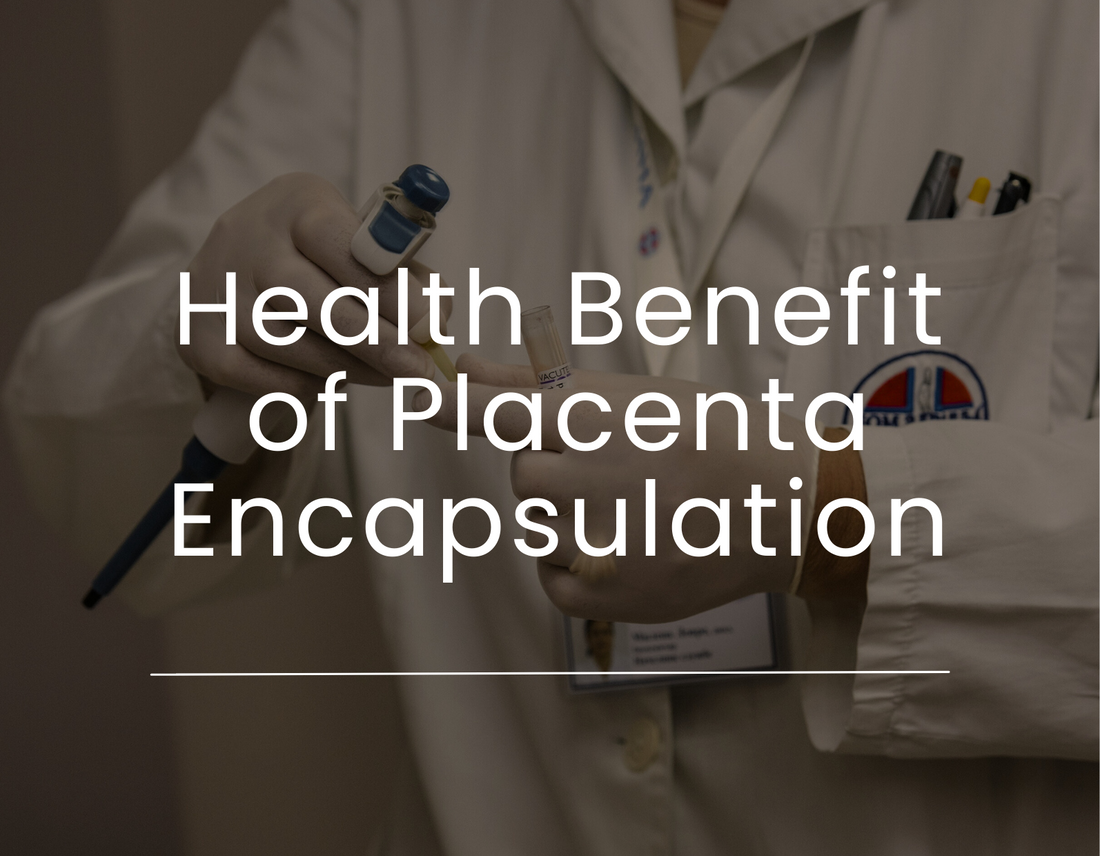Let's talk about something often left unspoken: the tough, raw realities of postpartum life.
Whether it's your first baby or you've been down this road before, the journey can be incredibly hard, both physically and emotionally. It's more than just 'baby blues' or tiredness – it's a profound, all-consuming experience. This is where the concept of eating placenta pills steps in, like a trusted friend offering a helping hand.
In this blog, we'll explore how this nurturing use of your postpartum placenta can provide much-needed support, making your journey into motherhood a bit gentler and a bit more understood. Because let's face it, we all could use some extra care during these life-altering moments.
What Is Placenta Encapsulation?
Placenta encapsulation represents a groundbreaking shift in the approach to eating the placenta. Stemming from the age-old belief in the placenta's nourishing properties, this innovative method reimagines its use.
After childbirth, the placenta, a once-critical lifeline for the fetus, is meticulously processed through sterilization, dehydration, and pulverization. The resulting powder is encapsulated, offering a novel and hygienic way to leverage the placenta's natural compounds potentially.
This forward-thinking approach melds traditional insights with cutting-edge health practices, symbolizing a progressive step in maternal wellness solutions.
6 Main Benefits of Placenta Encapsulation
For new mothers navigating the complexities of postpartum recovery, placenta encapsulation offers a blend of traditional wisdom and modern health practices. But what exactly are the benefits of turning this unique organ into consumable pills?
Let's delve into the potential advantages that make placenta encapsulation an attractive option:
1. Faster Postpartum Recovery
One of the primary benefits of placenta encapsulation is the potential for a faster recovery after childbirth. The hormonal and nutrient-rich composition of the placenta is believed to help the body heal more quickly from the physical demands of delivery.
2. Mood Improvement During Postpartum
The postpartum period can often be challenging, marked by mood swings and emotional upheavals. Encapsulated placenta pills are thought to help stabilize mood fluctuations. This mood regulation is potentially linked to the balancing of hormonal levels in the body, which can be disrupted during and after pregnancy.
3. Prevention of Postpartum Fatigue
New mothers frequently face significant fatigue in the postpartum period. Placenta encapsulation is touted to offer a natural way to combat this fatigue, providing a boost in energy levels due to the nutrients and hormones retained in the placenta.
4. Increased Milk Supply
Breastfeeding mothers may find an unexpected benefit in placenta encapsulation – an increase in milk supply. This is attributed to the hormonal content in the placenta, which can influence lactation and enhance the body's ability to produce milk.
5. Supplemental Nutrients and Amino Acids
The placenta is a rich source of trace elements and essential amino acids vital for the body's recovery after childbirth. These elements include iron, which is crucial for preventing postpartum anemia, a common concern among new mothers.
In fact, placenta pills contain a significant percentage of the recommended daily amount of iron, helping to replenish iron levels that might be depleted during childbirth.
6. Science-Backed Benefits
While these benefits are primarily supported by anecdotal evidence, some scientific studies suggest that certain hormones, such as progesterone and estradiol, remain present in the placenta post-encapsulation, potentially offering physiological benefits when consumed.
What Professionals Say About Placenta Encapsulation
In recent years, the practice of placenta encapsulation has garnered interest from both new mothers and healthcare professionals. While the scientific community continues to research its benefits, many women report positive experiences.
1. Insights from Medical Professionals
Lactation experts have observed cases where mothers report improved milk production after consuming encapsulated placenta. These reports, largely anecdotal, suggest potential benefits in lactation, though scientific evidence is limited.
2. Lactation Specialists' Observations
Lactation experts have observed cases where mothers report improved milk production after consuming encapsulated placenta. These reports, largely anecdotal, suggest potential benefits in lactation, though scientific evidence is limited.
3. Comprehensive Postpartum Care
Beyond individual practices like placenta encapsulation, comprehensive postpartum care is crucial. The CDC offers extensive resources on various aspects of postpartum health, including mental well-being, breastfeeding, and newborn care.
For a deeper understanding of overall postpartum care, visit the CDC's guide on After the Baby Arrives.
Considering Placenta Encapsulation?
As we've explored the unique benefits and comfort that placenta encapsulation can offer, it's clear that this practice could be a valuable part of your postpartum journey. If you're considering this path, it's crucial to choose a service that prioritizes safety, quality, and efficacy.
Pluscenta's premium service combines modern encapsulation techniques in a dedicated lab setting, ensuring safety and quality. Our process, focused on preserving vital nutrients and hormones, provides a bioavailable and convenient solution for postpartum recovery.
With a comprehensive package that includes everything from a prep kit to 24/7 customer service, Pluscenta stands out as a trusted choice for new mothers seeking a natural boost during their postpartum journey.
If you want to know more about us, visit our website!
